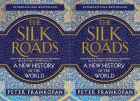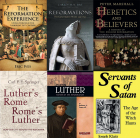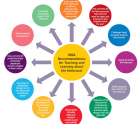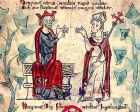Using historical scholarship
There is a long tradition of history teachers using historical scholarship whether to shape their enquiry questions using real questions that academic historians pursued, to gain new knowledge for enriching lessons or simply to keep inspiring the passion that fired their first love of history so that they can display it to pupils in the classroom itself. A tradition within this is the curriculum component ‘Interpretations’ - a sustained fixture of England’s national curriculum for history since 1991 which has spawned its own tradition of shared practice, research and debate. If you want to find out specifically about ‘Interpretations of history’, where there will be much reference to historical scholarship, go to Interpretations. Read more
-

Triumphs Show: Embracing scholarship to guide Year 7 on an exploration of the Silk Roads
ArticleClick to view -

Disembarking the religious rollercoaster
ArticleClick to view -

How ‘good’ are Key Stage 3 textbooks in supporting the teaching of the Holocaust?
ArticleClick to view -

What Have Historians Been Arguing About... Histories of education – and society?
ArticleClick to view -

What can rituals reveal about power in the medieval world? Teaching Year 7 pupils to apply interdisciplinary approaches
ArticleClick to view -

Deepening Year 9’s knowledge for better causation arguments
ArticleClick to view -

The mechanics of history: interpretations and claim construction processes
ArticleClick to view -

Move Me On 182: thinks that substantive knowledge is all that matters
ArticleClick to view -

What have historians been arguing about: African history in the precolonial period?
ArticleClick to view -

Cunning Plan 181: Incorporating a more global perspective within Key Stage 3
ArticleClick to view -

How introducing cultural and intellectual history improves critical analysis in the classroom
ArticleClick to view -

Film: What's the wisdom on... Historical Interpretations
ArticleClick to view -

Film: What's the wisdom on... Evidence and sources
ArticleClick to view -

Modelling the discipline
ArticleClick to view -

Polychronicon 177: The New Deal in American history
ArticleClick to view -

Historical scholarship, archaeology and evidence in Year 7
ArticleClick to view -

What’s the wisdom on… Evidence and sources
ArticleClick to view -

Teaching Year 9 to take on the challenge of structure in narrative
ArticleClick to view -

Making reading routine
ArticleClick to view -

Polychronicon 170: The Becket Dispute
ArticleClick to view


